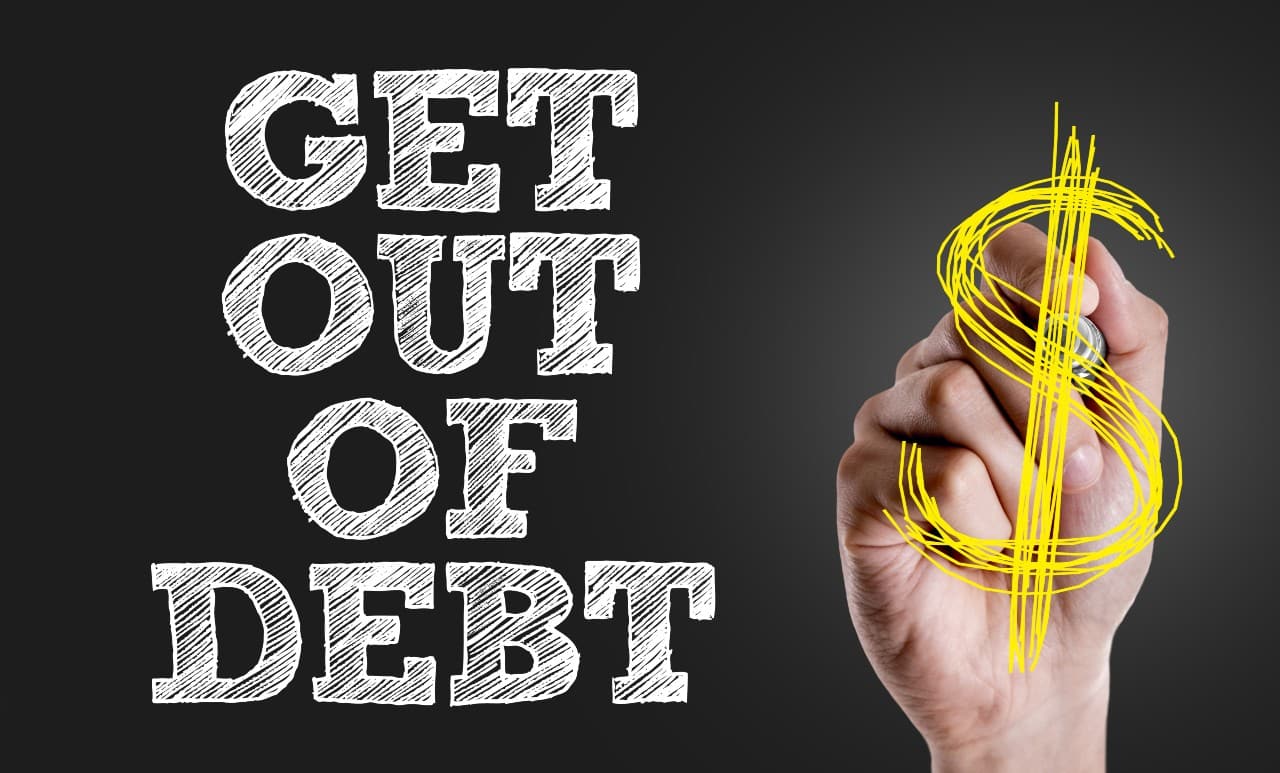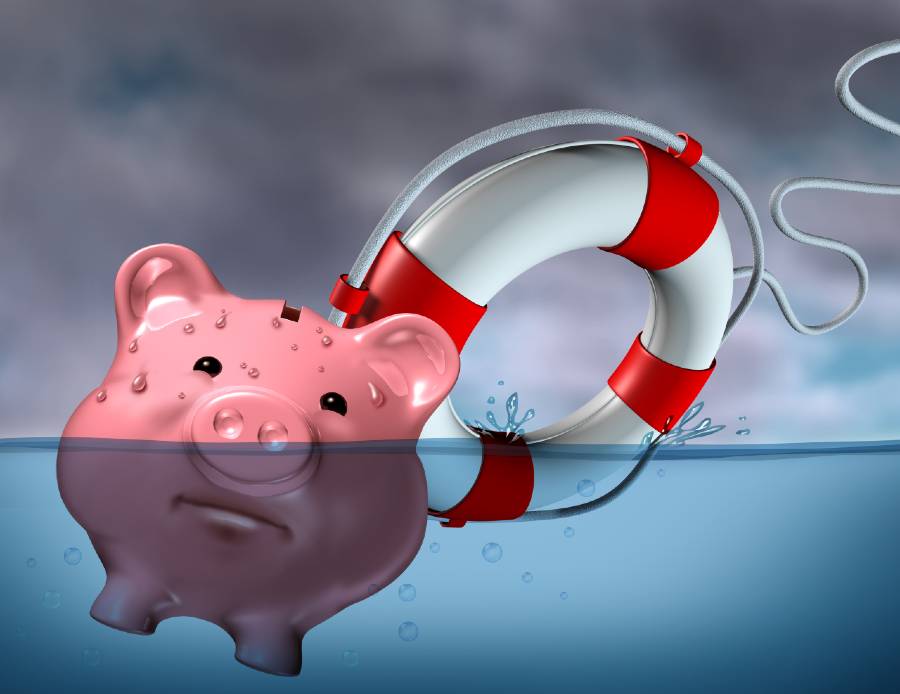Reader Manny has been struggling with calls from a collection agency. Financial Coach Christine walks him and us through how to master dealing with Collection calls. What to say, not say and what collection agencies are allowed and not allowed to do by law.
The Question
I’m in a bit of a chaotic time in my life right now. As a result, I’ve missed some payments and my debt has gone to collections. While I don’t know for sure, I suspect they’ve been sending letters to my old address. I’ve gotten voicemails from them and have received missed calls. However, I can’t confirm their from collections because I don’t answer calls from unknown numbers. The time I talked to them I verified that the debts are mine. What do I do?
Thank you,
Manny P., Gander, NL
The Answer
Dealing with creditors and collection calls can be stressful and overwhelming. Especially, if life is chaotic already. Take a deep breath! Here are some proactive steps that you can take to start regaining financial stability and bring your financial life back in control. I also included some steps you can follow to prevent this from happening again.
Dealing with creditors
Update your address
Ignoring the problem won’t make it better. It will only make it worse. You don’t want to miss any important letters from the collection agency. If they think they can get more money by taking legal action, they might pursue legal action. If they do, you have to reply in a certain time. Not doing so gives them the opportunity to get a court order to pursue wage garnishment and take money from your paycheck or bank account. While this may not be the most likely scenario, it shows why it’s important to update your address and not ignore your mail.
Answer the calls or call the agency yourself
The harder a collection agency has to work to get ahold of you the less likely it is that they will negotiate a payment plan with you.
The best thing you can do now is to not ignore the collection agency. Call them back and explain your situation. Tell them what you can afford, even if it is a fraction of what you owe.
They may try to get you to pay the full amount because they make a percentage of what they collect. The truth is that they’d much rather collect something than nothing. If bankruptcy is the alternative, no one wins. So there is always some room to negotiate.
Document all communication in writing so that there is a record.
Figure out what you can afford
Figure out what you can afford to pay on your debts and when. Make a list of all your required expenses and deduct them from your income. Calculate how much is left that you can pay towards your debt. Be realistic though. If you don’t follow through on your commitment, you are unlikely to get a second chance from the collection agency.
Know your rights
As a debtor, you have rights too. The Collection Agencies Act regulates what debt collectors can and can not do. Essentially they can’t harass you. They can’t be threatening or use undue pressure. Calling is restricted to between 7 am and 9 pm during the week, Sundays between 1 pm and 5 pm and not at all on holidays. They can’t discuss your situation with anyone other than you. They can call your friends and family but only to try to get your contact details (ie: telephone number or address) if they can’t get a hold of you. If you feel that the collections agency has violated your rights, contact the consumer protection office or you can check out the Office of Consumer Affairs.
Get professional help
If all of this feels way too overwhelming, you are not alone. Ask for help. There are professionals out there who are trained to help you get out of debt. There are lots of debt settlement options. For example, a Debt Management Plan is where a credit counselling agency negotiates with your creditors. Their goal being to come up with a payment plan that works for your budget (and possibly with little or no interest).
Be careful! Use a reputable company. For example, a non-profit credit counselling agency or an Accredited Financial Counsellor.
If you believe bankruptcy or a consumer proposal may be the only way out for you, contact a Licensed Insolvency Trustee. They can help you decide if that is the right solution for you.
If this ever happens again
Hopefully, this never happens again! If it does, here are a couple of things that might help the resolution go a little smoother.
Call your creditors first
When life happens and you can’t keep up with your debt payments, call your creditors right away. Tell them what is going on – even before your payments are past due. If you are proactive, they are much more likely to negotiate with you. When they send your debt to a collection agency, the collection agency takes 25-50% of what they collect from you. This means there is a lot more room to negotiate before it goes to collections.
Don’t share too much information
It is always best to talk to creditors and collections about your “alleged debt,” as opposed to admitting the debt is yours. Acknowledging the debt may restart the statute of limitations which determines how long the creditor has to collect on the debt. Depending on the province, the Statute of Limitations varies between from 2-6 years since the last activity. Typically, the last activity is your last payment, but in some instances acknowledging the debt is considered activity.
The collection agency only knows what is on your credit report. They don’t know what assets you own or what other financial resources you may have. It’s better to keep it that way. You don’t have to answer all of their questions.
If you are ever accused of a debt that isn’t yours, there are steps you can take to dispute it.
Rebuilding your financial health and preventing future debt build-up
Create a budget
To not feel financially stressed, you need to know that you have more money coming in than you have going out. Write out your monthly income and expenses and deduct your expenses from your income. If that number is negative, you need to cut some expenses or increase your income. Remember though that a lot of expenses only happen occasionally or once a year. You need to set aside money every month for these expenses.
Plan for potential loss of income
Having 3-6 months of income set aside for job loss is important in preventing financial stress when life gets chaotic. Have a separate savings account where you contribute a fixed amount every month until you reach 3-6 months’ worth of income. Ideally, the account holding your emergency fund will earn some interest.
Rebuild your credit
Positive financial habits will help you rebuild your credit score. Making payments on time, reducing your debt and not incurring new debt will all contribute to a higher score.
Conclusion
Life can be unpredictable. You are not alone. There are steps you can take to pursue debt recovery. Reminding yourself of these facts can make the process of dealing with creditors a lot less stressful. Once back on track, taking steps to prevent debt from becoming a problem will help you to feel confident and in control of your finances.
Have A financial question you’d like answered?
Post the question to our Facebook page and we’ll get one of our experts to answer it! We’ll post the response right here in our blog section.










